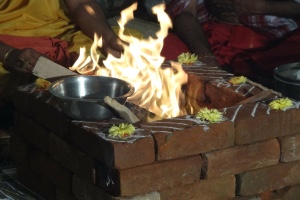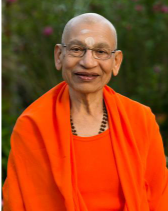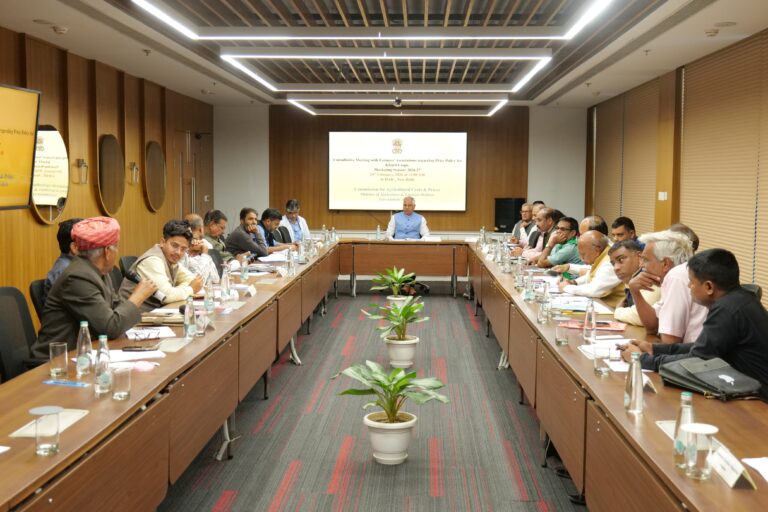
Spirituality

By Swami Viditātmānand Saraswati*
Paraspara Upakāra (Mutual Obligations)
While explaining the system of yajña, Bhagavāna says that in the beginning of the creation, when prajāpati created human beings, he also created yajña along with them. That means, in the śāstras, he stated numerous yajñas that one should perform. According to the popular meaning of yajña, fire is lit in vedi (altar) devatās are invited and oblations are offered to devatās and that is called yajña. Addressing the devatās, the process of renouncing the material as oblation for yajña in the fire and offering it to devatās is called yajña. In this sense prajāpati created human beings and along with that also created yajña and then he told people to nurture because of this yajña. May yajña be the kāmadhenu that will give you desired results. How can that happen? By offering sacrifices in yajña, you satisfy devatās such as Indra etc. and nurture by performing yajña. And by satisfying devatās, you gain śreya.
Here, we can decipher the meaning of ‘śreya’ as advancement and that of niḥśreyasa as material and spiritual advancement. Desiring martial development, if you perform karma with expectation, you will achieve material prosperity. And if you perform karma for spiritual upliftment without expectations, you will also be able to ultimately achieve niḥśreyasa, meaning freedom through jñāna. Here, in Gītā, yajña is presented as the means of upliftment of life. Earlier it was said that it rains due to yajña. Rain is a symbol of material prosperity. If members of society collectively perform karma with the spirit of yajña, meaning, if they are ready to sacrifice personal wellbeing for the wellbeing of the samaṣṭi (whole universe), society and the country, such an atmosphere will be created that it will bring about material prosperity. The spirit of philanthropy and good will are the only grand things that are extremely suitable for mental and physical health and they bring individual and collective prosperity.
Here we can understand samaṣṭi by the word ‘devatā’. Earlier in the discussion of yajña it was shown that individual organs and devatās continuously work for and worship īśvara, meaning samaṣṭi. As a result of that, samaṣṭi becomes agreeable and individual’s wellbeing is automatically taken care of. Therefore, for the well-being of the self, instead of having an intention of taking advantage of someone else or exploiting someone, if the spirit is maintained to do good to others or serve others, that will bring lasting prosperity in the long run. Selfishness may bring about immediate benefit, however, there is only loss at the end.
If the spirit of yajña is useful for material prosperity also, then it would definitely be useful for spiritual achievement. As a matter of fact, the spirit of yajña for material prosperity creates the basis for spiritual achievement.
Garva (Pride) is mithyā (false, illusory)
Someone said that, “Swamiji, these are all outdated, orthodox talks. Devatā who? And what grace? The prosperity I have is what I have achieved with my own effort and strength. Where does your devatā come into it? I have knowledge, strength, skill, expertise and I know where to invest to gain more returns, where to play tricks, I have all this understanding. I have gained money, power and fame by using that. Where does devatā’s grace come into the picture? What have they given to me?”
Also read: Spiritual Discourses: Let there be a sense of gratitude regardless of the situation
In the 15th chapter, Bhagavāna says: सर्वस्य चाहं हृदि सदिदर्ष्ट: I reside in everyone’s heart as aṅtarātmā (the one who controls from within). मत्तः मत्तः स्मृतिर्ज्ञानमपोहनं च memory, knowledge and forgetfulness are also due to me. (15-15) Īśvara resides in everyone’s heart. And whatever memory, knowledge we have is all due to īśvara. Īśvara is in the form of intellect in an intelligent person, īśvara is the brightness in a bright person. Īśvara is the strength of a strong person. Therefore, the strength, intelligence, brightness, penance etc. that we have in our life, the achievements we have, that is all due to īśvara only. Bhagavāna says that only I am the one who is continuously giving you all this. Thus, we have continuous grace of īśvara upon us in the form of devatās. It is a false notion, ego, to think that I am intelligent, capable, well and I achieve everything because of my own effort. Because Bhagavāna is the charioteer of Arjuna in the Mahabharat battle, Arjuna has the strength to shoot arrows. Without the grace of īśvara, Arjuna would not have any strength. After the battle of Mahabharata was over, at the time of getting down from the chariot, Bhagavāna told Arjuna to get down first. Everyday, as a charioteer, Bhagavāna would get down from the chariot first and then the owner of the chariot Arjuna would get down. But the order changed on the last day. First Arjuna got down from the chariot. Then, as soon as Bhagavāna got down from the chariot, the chariot burned to ashes in fire. Quieting Arjuna’s astonishment, Bhagavāna said, “Due to the strikes of weapons from the enemy army, the chariot was already burnt down; however, as long as I was in the chariot, it could not burn and you were saved.”
Arjuna did not get killed in the battle because of Bhagavāna and he became victorious also due to Bhagavāna. We walk around taking credit in our life as in ‘I did this’, this is similar to a situation of a dog walking under a cart thinking it itself is pulling the cart. One whose mind is deluded due to ego believes that ‘I am doing the karma’. In reality, whatever is happening is due to the grace of īśvara, devatā. I am able to speak because of the grace of agni (fire) devatā. You are able to hear because of the grace of digdevatā. We can walk because of the grace of Lord Vishnu. Thus, whatever activity is happening in this universe is all credited to the grace of īśvara. Therefore, we should offer oblations to those devatās and contribute to the universal yajña.
*Swami Viditatmananda Saraswati has been teaching Vedānta Prasthānatrayī and Prakaraṇagranthas for last 40 years in Ahmedabad, Gujarat. Throughout the year, he conducts daily Vedānta discourses, accompanied by retreats, and Jñāna Yajñas on Vedānta in different cities in India and in foreign countries.





